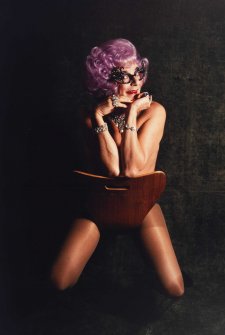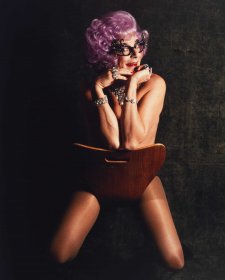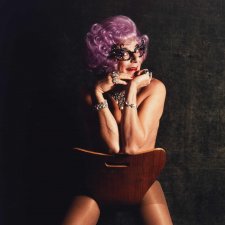- About us
- Support the Gallery
- Venue hire
- Publications
- Research library
- Organisation chart
- Employment
- Contact us
- Make a booking
- Onsite programs
- Online programs
- School visit information
- Learning resources
- Little Darlings
- Professional learning
Chips Rafferty MBE (1909–1971), screen actor, was born John Goffage in Broken Hill and nicknamed 'Chips' as a boy. He worked in a number of jobs including as a shearer, miner, drover and pearl diver before making his film debut in Dad Rudd, M.P. (1940). Director Charles Chauvel saw his potential and cast him in a lead role in Forty Thousand Horsemen (1940), for which he adopted the screen name Chips Rafferty. The success of the film brought him to public attention. A year later, during the Second World War, Rafferty enlisted in the Royal Australian Air Force. He was released to act in propaganda films for the Department of Information, including The Overlanders (1946), which was a hit in Australia and in Britain. Rafferty made a foray into Hollywood for The Desert Rats (1953), and was briefly marketed as Australia's answer to Cary Grant, but he was more in his element playing the lean and laconic bushman. Variations on this character appear throughout Rafferty's career, and his films contributed to the popular notion of Australian masculine identity: The Rats of Tobruk (1944), Bush Christmas (1947), Eureka Stockade (1949), Kangaroo (1952), Smiley (1956), Smiley Gets a Gun (1958), The Sundowners (1960) and They're a Weird Mob (1966). His final film was the classic Wake in Fright (1971), filmed in his hometown of Broken Hill.
Collection: National Portrait Gallery
Gift of Jozef Vissel 2011
© Jozef Vissel
Jozef Vissel (13 portraits)



On one level The Companion talks about the most famous and frontline Australians, but on another it tells us about ourselves.



Bare: Degrees of undress celebrates the candid, contrived, natural, sexy, ironic, beautiful, and fascinating in Australian portraiture that shows a bit of skin.



Visit us, learn with us, support us or work with us! Here’s a range of information about planning your visit, our history and more!